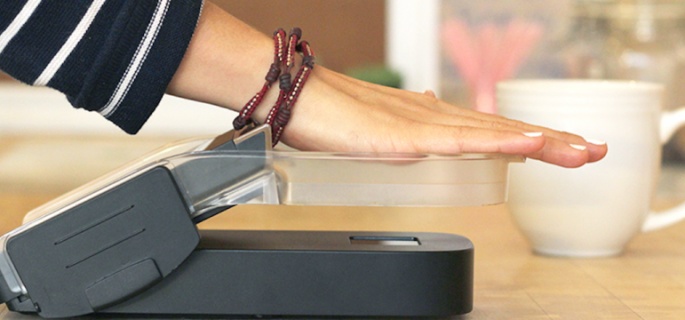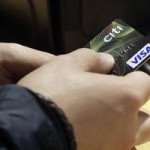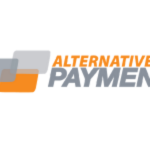Biometric Payment Startup Keyo Lets You Pay With Your Palm

You’ve ordered your morning coffee, unloaded all your groceries at the checkout or made it to the front of a long line at the drugstore.
You reach for your wallet.
Your pocket is empty.
Shit. You pat down your body, desperately hoping you remembered to put it in another pocket or compartment in your purse. The people behind you are grumbling, the cashier is yawning, and you come to the sinking realization that you left your wallet at home.
Keyo sees a future where this moment doesn’t exist. Specifically, Keyo sees this future in the palm of your hand.
Keyo is a Chicago-based biometric payment platform that maps the pattern of blood vessels in your hand to create a unique biometric identifier connected to your credit card or debit card. Translation? You can pay by hovering your palm over their device. No cards, cash or smartphone needed. And while they’re starting with payments, eventually Keyo hopes their biometric tech can replace many of the physical items that we use (and lose) almost daily.
“We really see a future without keys, cards, wallets, IDs and tickets,” said Keyo cofounder and CEO Jaxon Klein.
The startup is cofounded by husband and wife duo Klein and Cayetana Polanco, who’s chief design officer, along with their college friend Delna Sepoy Straus, who’s chief operating officer (all are Beloit College alums).
Klein and Polanco previously worked on payment tech through clients of their development firm Invento Media, but were puzzled to find that no one had yet been able to create a go-to platform for biometric pay (a problem they confronted when they both forgot their wallets one day at the grocery store).
So they teamed up with Japanese tech company Fujitsu to develop Keyo’s countertop payment terminal, and developed the proprietary software Keyo runs on in-house.
Users register for Keyo similar to other payment platforms–they create an account with their credit card information and receive a registration code on their phone. Here’s where Keyo diverges: Users have to go to a store that uses Keyo, type in their code on the Keyo device, place their right hand over attached payment terminal and Keyo takes two infrared pictures of their unique pattern of palm veins.
That pattern is then encrypted, matched to account information and only retrieved during a transaction. To make a payment, users tap the screen to confirm the total, add a tip and place their palm over the device (which sits next to the cash register). That’s it. There’s also an online dashboard where users can track purchases.
While biometrics in payments are nothing new–Apple Pay, for example, offers fingerprint pay–Keyo’s palm biometrics are particularly secure because they don’t capture an external biometric such as a fingerprint, iris scan or facial pattern. Keyo’s technology detects five million reference points on the palm, is 100 times more exact than fingerprint identification and requires live detection, meaning there actually has to be blood flowing for a hand to be detected (eliminating the concern that someone might chop off someone’s hand to access their information–an actual concern in the biometrics world).
Given Keyo was founded and built in Illinois–one of only two states nationwide with biometric data privacy laws on the books, which have resulted in lawsuits against Facebook, Google, Snapchat and more–the startup has built security and data privacy into the system from the ground up. Biometric data is stored in high security servers, the startup uses 256-bit encryption and they check identification against public records to be sure that real people are signing up for the platform. They have a biometric privacy statement, and their terms and services explain how they use the data and when it will be destroyed if someone stops using the service.
Already they’ve run a pilot of their palm payment system at Humboldt Park coffee shop Cup & Spoon, and they’re currently running a beta test with Cup & Spoon and Big & Little’s in Wicker Park. They’re also in conversations to expand that beta to 30 stores in and nearby Wicker Park, with the goal of onboarding 50 businesses by the end of the year. They’ve raised $325,000 so far from friends, family and angel investors, and plan to raise more.
There have been other palm payment startups in the past that have popped up and fallen off the radar, such as Biyo and Quixter, so customer acquisition and achieving merchant buy-in is extremely important to Keyo’s rollout, the founding team said.
Keyo is starting with local businesses that tend to have repeat customers (coffee shops are a big early push) in specific neighborhoods to create a concentrated area of biometric payments and build new payment habits with customers. They’re keeping in close contact with customers and merchants to iterate as they roll out, building the feedback in as they grow: They added the option to add a tip in real time, for example, after Cup & Spoon asked for the feature.
“We’re learning from our customer,” said Polanco. “We have to get peoples’ trust.”
They also only charge a flat 1 percent fee on transactions to keep the processing fees competitively low, and do away with payment processing negotiations that disadvantage small businesses. A more affordable processing option also incentivizes merchants to be a partner in bringing customers on board.
“We don’t just want to make the next website, the next app,” said Straus. “We want to do something that has impact. What better way to do something that helps merchants…and puts money back in their pockets?”
At Cup & Spoon, it seems to be working. Owner Rosie Quasarano was first introduced to the Keyo team through a few of the coffee shop’s regulars who knew the founding team from Beloit. While she said she’d never thought about biometric payments before, she was drawn to the “intriguing” tech, low processing fees and supporting fellow entrepreneurs.
While reactions to the tech varied (“It was either, ‘That’s amazing’ or ‘That scares me,'” she said), regulars were drawn to the tech for its convenience. Now Quasarano estimates five to 10 transactions per day are through the Keyo platform, and she saves three to five percent on each transaction.
“With a coffee shop every penny counts, so with the savings there it’s been a big help,” she said. Next up, she’s looking forward to the rollout of a rewards program–no more lost loyalty cards. “Like a virtual punch card, but for your hand,” she explained.
One Keyo’s early customers was Jared Bobo, founder of food blog LikeFood, who regularly works out of Cup & Spoon. He signed up for Keyo when they launched their beta last fall, drawn to the convenience, and he hasn’t pulled out his wallet at the coffeeshop since.
“Being an entrepreneur, you always look for something that takes less time,” he said. “When you’re swiping your card you still have to touch a pad at some point, here’s how much for the tip, [put] my finger on the pad for the signature.”
With Keyo, however, he said “I feel like it’s in one motion.”
While they’re starting out with payments, the journey down the road of biometrics has convinced the founding team of the tech’s potential for other industries, perhaps with Keyo’s software platform replacing tickets, public transit turnstiles and hotel room keys.
“We see biometrics as the future of a lot of things and we want to be a key player in that future,” said Klein.
Source: ChicagoInno





























